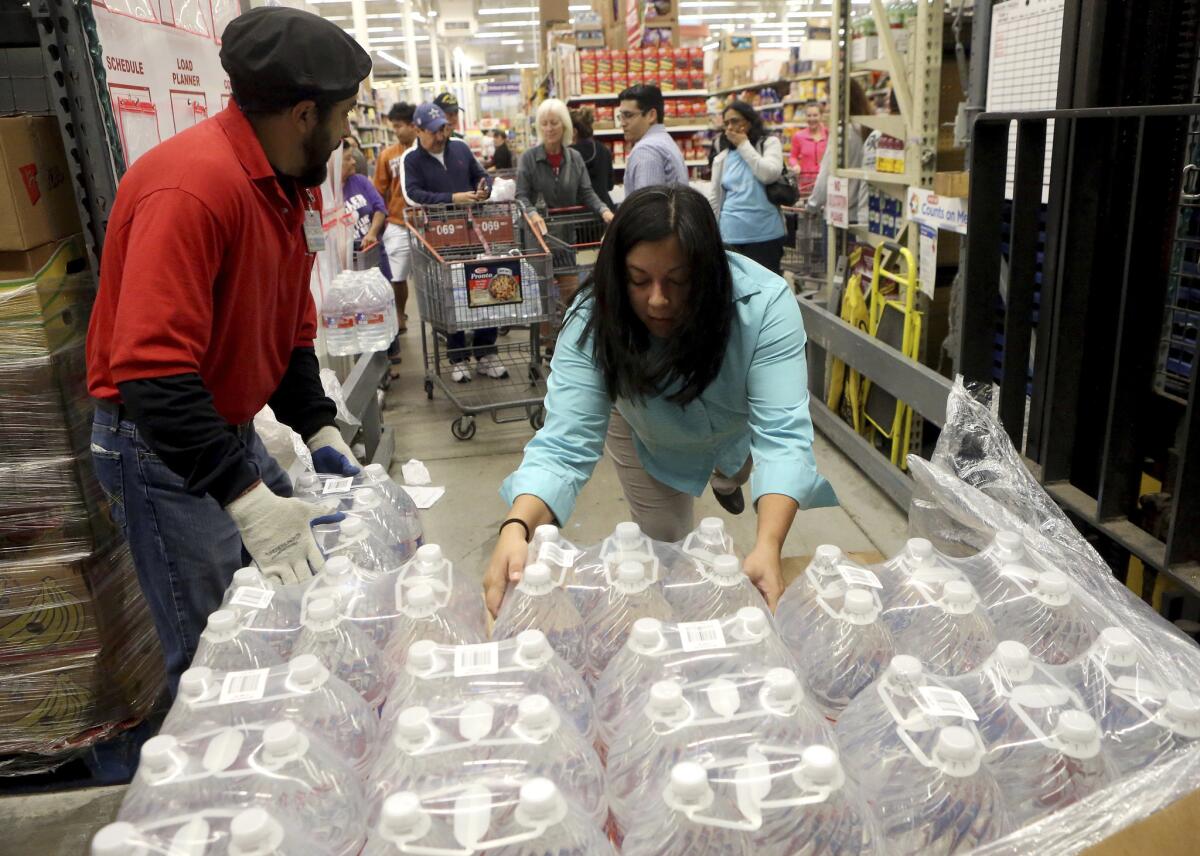Three reports of dirty water preceded ban in Corpus Christi, Texas, official says

There were three reports of dirty water before the 300,000 residents of Corpus Christi were told not to drink the city’s water due to a chemical leak at an asphalt plant, city officials said Saturday, adding that the city has not found evidence of water contamination.
Mayor Dan McQueen said he won’t know until Sunday whether a ban on drinking, cooking or bathing with tap water will be lifted for the 113,000 citizens still under the restriction.
McQueen, who took office Tuesday after defeating an incumbent who came under fire for her handling of previous water crises, said there is no indication yet that the chemical leak at an asphalt plant contaminated the Gulf Coast city’s water supply.
Officials are hoping the answer will come Sunday with the release of the first first results of 30 samples taken by the U.S. Environmental Protection Agency and being tested in Houston.
The EPA also said in a statement Saturday that there were four “unconfirmed reports” of symptoms possibly related to prohibited water use. McQueen called the reports “rumors.”
Assistant City Manager Mark Van Vleck said earlier that the first “dirty-water report” came Dec. 1 from the administration building owned by energy company Valero at the asphalt plant that’s leased to Ergon Asphalt & Emulsions. City workers flushed the pipe. A second report came from the same building Dec. 7, he said, and the main was flushed again.
“We get dirty-water reports all the time,” Van Vleck said of the first two, adding that old cast-iron pipes are usually the reason.
But Monday, Valero workers told the public works department “something white and sudsy” was in water at the administration building. City workers determined there was a leak in a chemical tank at the asphalt plant and on Tuesday determined there was a backflow problem.
The city told the Texas Commission on Environmental Quality about it Wednesday, Van Vleck said, and hours later the state banned use of public drinking water.
The ordeal was unnerving for Corpus Christi residents, especially those who live near the asphalt plant.
“Have we been exposed?” asked Carol Gonzalez, 37. “We just don’t know.”
Her family lives less than a mile away, and her husband, Anthony, had made spaghetti for their 9- and 10-year-old daughters the night the water use ban was announced.
Interviewed picking up a free case of bottled water at a city-run senior center, the couple had already spent $150 on water, not to mention eating out. And they’ve been driving out of the city to fill buckets of water they use to bathe their children, who include a 6-month-old girl.
“It’s gotten very expensive, and there’s not going to be any reimbursement,” Carol Gonzalez said.
A state Commission on Environmental Quality report obtained Friday indicates that a combination of Indulin AA-86 and hydrochloric acid leaked into the water supply. Indulin is an asphalt-emulsifying agent that’s corrosive and can burn the eyes, skin and respiratory tract if a person comes into contact with concentrated amounts.
More to Read
Sign up for Essential California
The most important California stories and recommendations in your inbox every morning.
You may occasionally receive promotional content from the Los Angeles Times.









